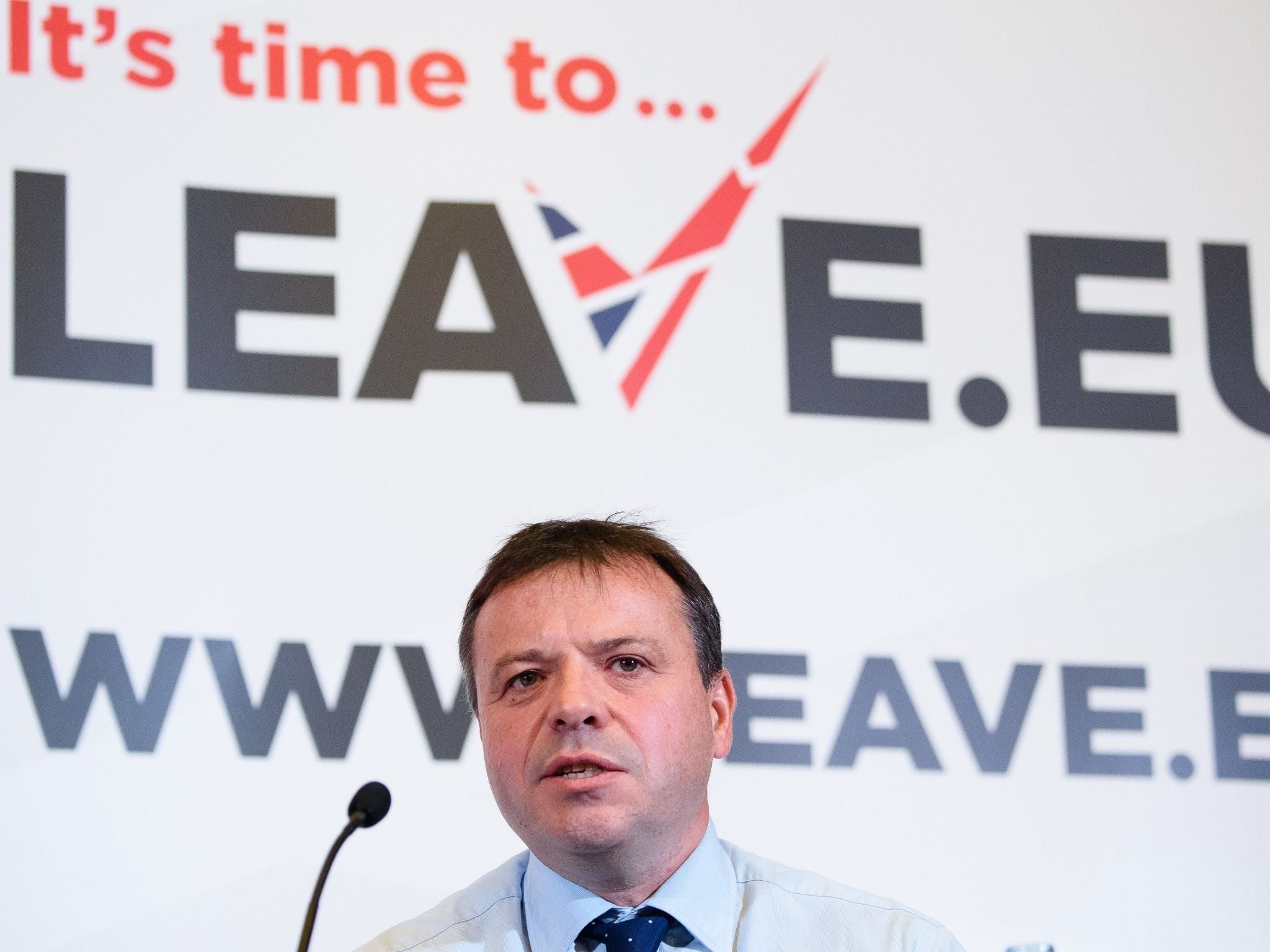Arron Banks loses libel case against journalist Carole Cadwalladr
Leave.EU founder tweets after ruling: ‘I won the only thing that mattered Brexit!’
Your support helps us to tell the story
From reproductive rights to climate change to Big Tech, The Independent is on the ground when the story is developing. Whether it's investigating the financials of Elon Musk's pro-Trump PAC or producing our latest documentary, 'The A Word', which shines a light on the American women fighting for reproductive rights, we know how important it is to parse out the facts from the messaging.
At such a critical moment in US history, we need reporters on the ground. Your donation allows us to keep sending journalists to speak to both sides of the story.
The Independent is trusted by Americans across the entire political spectrum. And unlike many other quality news outlets, we choose not to lock Americans out of our reporting and analysis with paywalls. We believe quality journalism should be available to everyone, paid for by those who can afford it.
Your support makes all the difference.The High Court has thrown out Brexit-backing businessman Arron Banks’s libel claim against journalist Carole Cadwalladr.
It ruled on Monday the freelance reporter’s public interest defence had been successful.
The libel claim centred around comments made in a TED Talk by Ms Cadwalladr and a subsequent tweet, in which she alleged Banks – who founded the Leave.EU campaign – was lying about his relationship with Russia.
The High Court understood Mr Banks to be complaining about Ms Cadwalladr claiming he had not been honest about secret dealings with the Russian state in relation to the “acceptance of foreign funding of electoral campaigns in breach of the law on such funding”.
Mr Banks argued that the statements made by Cadwalladr were “false and defamatory” and sought damages and an injunction to restrain the continued publication of the remarks, which are still available to view online.
Mrs Justice Steyn dismissed the claim on Monday on the grounds the journalist held a “reasonable belief” her comments were in the public interest.
After the ruling was handed down, Mr Banks tweeted: “I won the only thing that mattered Brexit !”
He also said: “Congratulations to Carole on winning today, it leaves open for the journalist the excuse that she thought what she said was correct even though she had no facts.”
The major Brexit donor added he would “likely” appeal.

Meanwhile, Ms Cadwalladr – who has investigated the funding of the referendum campaigns and alleged misuse of data in relation to them – said she was “so profoundly grateful and relieved” by the ruling.
“Thank you to the judge, my stellar legal team and the 29,000 people who contributed to my legal defence fund. I literally couldn’t have done it without you,” she tweeted.
She also said: “Fighting this has been a crushing, debilitating, all-consuming experience that I sincerely hope no other journalist ever has to go through.”
In her ruling, Mrs Justice Steyn said: “Based on her investigation, Ms Cadwalladr had reasonable grounds to believe that Mr Banks had been offered ‘sweetheart’ deals by the Russian government in the period running up to the EU referendum, although she had seen no evidence he had entered into any such deals; and Mr Banks’s financial affairs, and the source of his ability to make the biggest political donations in UK history, were opaque.”
The judge said Ms Cadwalladr had not gone to Mr Banks for a response before the talk, but had previously given him a right of reply to articles she had written about essentially the same subject.

She added: “Although Ms Cadwalladr made clear that she did not understand offshore structures, in essence she drew the conclusion that his finances were opaque and it was unclear where he had derived sufficient funds to be able to donate as much as he had to the Brexit campaign.
“Those limited conclusions that she drew from the wide range of articles she read, and financial journalists and experts she spoke to on this topic, were reasonable.
“In all the circumstances, I find that the defendant has established that her belief that publishing the TED Talk was in the public interest was reasonable.”
The judge found that the tweet Mr Banks complained about had not caused “serious harm” to his reputation, but decided that, if she had, she would have concluded Ms Cadwalladr’s belief that the tweet was in the public interest was also reasonable.
Another judge previously found that the meaning of Ms Cadwalladr’s statements is “that, on more than one occasion, Mr Banks told untruths about a secret relationship he had with the Russian government in relation to the acceptance of foreign funding of electoral campaigns in breach of the law on such funding”.
Following that ruling in 2019, Ms Cadwalladr accepted that her conclusion was determined by the judge to be untrue, but has continued to defend the case on public interest grounds.
The Society of Editors, a group which fights for media freedom, welcomed Monday’s decision to throw out Mr Banks’s libel claim.
Dawn Alford, its executive director, called it a “hugely important victory” for both Ms Cadwalladr and “press freedom more widely”.
But she added: “While today’s verdict is a welcome one, the case brought against Cadwalladr – an award-winning investigative reporter – highlights the ongoing challenges and threats faced by journalists in producing public interest journalism that seeks to hold the wealthy and powerful to account.”
Additional reporting by Press Association




Join our commenting forum
Join thought-provoking conversations, follow other Independent readers and see their replies
Comments